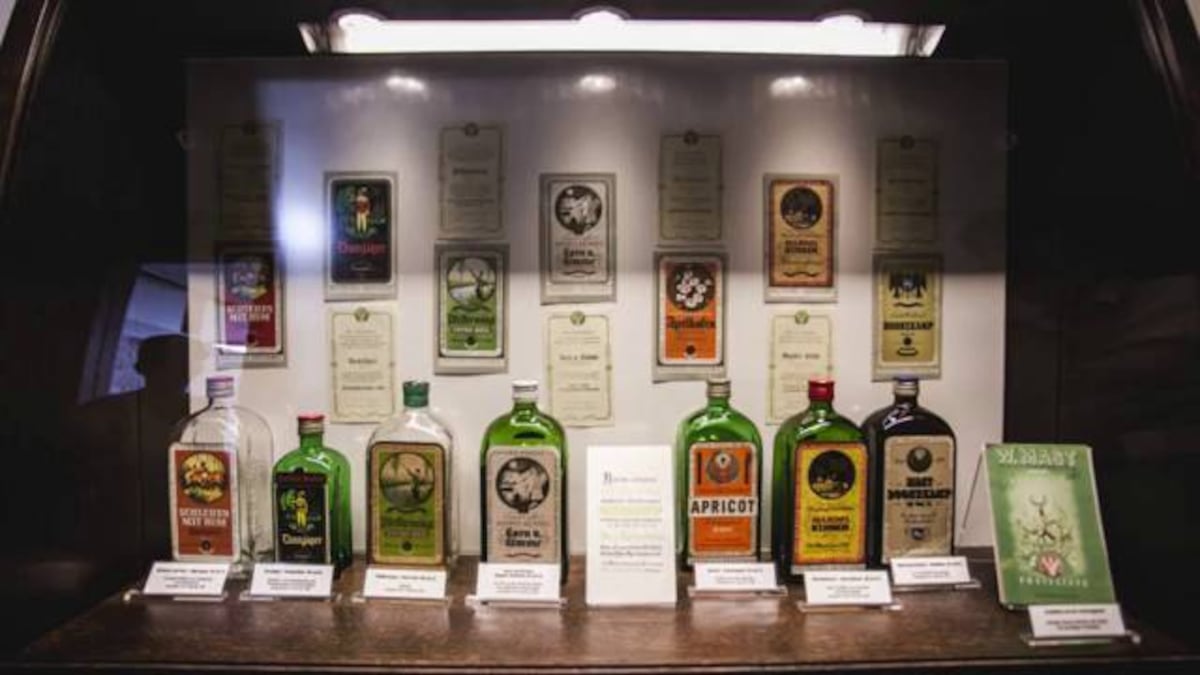How Spaniards fell in love with J?germeister
The country has become the fifth largest market worldwide for the German liqueur

It is 1am and a young man wants a shot. He doesn¡¯t ask for a product, like a whisky or a vodka, but rather a brand: J?germeister. It¡¯s a drink that a decade ago many Spaniards wouldn¡¯t have recognized, much less been able to pronounce.
But today, Spain is one of J?germeister¡¯s top markets ¨C the fifth in the world ¨C and the dark, sticky blend of 56 herbs is becoming more and more popular. Spanish fans are growing: in 2005, 387,000 liters of J?germeister were sold, but last year, sales reached 1.7 million liters.
In 2005, 387,000 liters of J?germeister were sold in Spain. Last year, sales reached 1.7 million liters
J?germeister¡¯s marketing plan has been focused on reaching young people who are into the alternative music scene, and ¡°urban tribes¡± such as hipsters.
The Spanish sales strategy is vastly different from the origins of the drink in Germany, where J?germeister was served as an after-dinner liquor.
In the center of the small town of Wolfenb¨¹ttel, the distillery ¨C a huge, modern-day glass building ¨C is squeezed between traditional German houses that look like something out of a fairytale.
J?germeister is the biggest industry in this town of just 53,000 people, but its high sales mean it is now the eighth most-sold spirit in the world.
J?germeister¡¯s marketing has been focused on reaching young people who are into the alternative music scene
The family-owned secret recipe, which dates back to 1878, was initially designed to provide a warming nip for hunters. The same vats have been used for more than a century, and workers must get their hands dirty cleaning them out at least once during their long-term employment at the company.
In 2014, J?germeister sold 6.8 million nine-liter cases throughout the world and, although sales are still behind Smirnoff vodka (which sold 25 million cases last year) and Bacardi rum (18 million cases), the alcoholic beverage is a rarity in top rankings.
It is only the only spirit drink that does not belong to a large conglomerate distillery, and it¡¯s the only company to base its business on a single product.
¡°J?germeister¡¯s popularity has coincided with the economic crisis ¨C young people have begun to doubt what¡¯s politically correct. They have stopped trusting the people who govern them and are questioning big corporations,¡± explains Vicens Bisbal, J?germeister¡¯s sales representative in Spain.
The beverage has also become associated with drunkenness and nights that end with blackouts
¡°We represent the rebels, and they see us as a friend at concerts and festivals,¡± he adds.
The United States is J?germeister¡¯s main market, followed by Germany and Britain. Spain is the most recent success ¨C but there have been hiccups along the way.
Twelve years ago J?germeister was marketed as an after-dinner aperitif. But that strategy fell flat and so in 2008 company officials launched an aggressive guerrilla marketing campaign.
Their sales secret is simple: know your customers and focus on them.
Corporation officials say it is an inclusive brand and suitable for everyone, but each country has its peculiarities. In Spain, the target market is people aged between 18 and 39. But that has caused its own problems, given that the beverage has become somewhat associated with drunkenness and nights that end with blackouts.?
¡°We avoid that at all costs,¡± says Bisbal. ¡°We observe all international standards [related to alcoholic drinks].¡±
The company has stopped sponsoring motor sport events. ¡°If you drink, do not drive,¡± reads a sign at the factory
But no one can completely separate it from its history. In Nazi Germany, it was used as an anesthetic by troops. It was also the top sponsor of Eintracht-Braunschweig soccer team, a legend in itself in the 1973 Bundesliga.
But years ago it stopped sponsoring motor sport events. ¡°If you drink, do not drive,¡± reads a company slogan that is pasted on the wall of J?germeister¡¯s museum in Wolfenb¨¹ttel.
So does this mean that the brand is more important than the product?
¡°It is of a very high quality,¡± says Bisbal, who argues that his customers love the drink for its flavor.
¡°If you go to a bar and order J?ger you already know the product. There¡¯s no point in a bar stocking bottles of it if the customer doesn¡¯t know it already. [...] That¡¯s why we¡¯ve worked so hard to get the brand out there.¡±
Tu suscripci¨®n se est¨¢ usando en otro dispositivo
?Quieres a?adir otro usuario a tu suscripci¨®n?
Si contin¨²as leyendo en este dispositivo, no se podr¨¢ leer en el otro.
FlechaTu suscripci¨®n se est¨¢ usando en otro dispositivo y solo puedes acceder a EL PA?S desde un dispositivo a la vez.
Si quieres compartir tu cuenta, cambia tu suscripci¨®n a la modalidad Premium, as¨ª podr¨¢s a?adir otro usuario. Cada uno acceder¨¢ con su propia cuenta de email, lo que os permitir¨¢ personalizar vuestra experiencia en EL PA?S.
En el caso de no saber qui¨¦n est¨¢ usando tu cuenta, te recomendamos cambiar tu contrase?a aqu¨ª.
Si decides continuar compartiendo tu cuenta, este mensaje se mostrar¨¢ en tu dispositivo y en el de la otra persona que est¨¢ usando tu cuenta de forma indefinida, afectando a tu experiencia de lectura. Puedes consultar aqu¨ª los t¨¦rminos y condiciones de la suscripci¨®n digital.









































